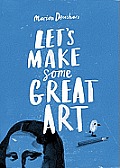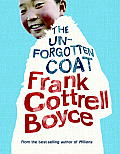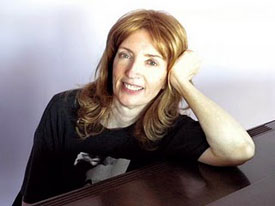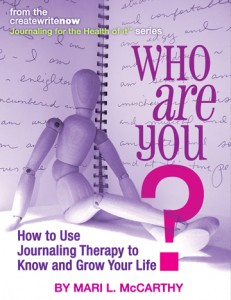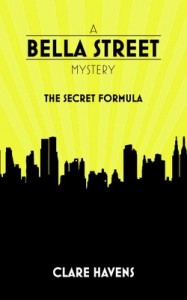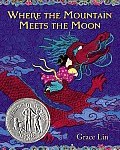Bianca Turetsky is the author of The Time-Traveling Fashionista (see my review), a book about a girl who tries on a vintage dress and ends up transported back to the time the original owner wore it. It’s the first in a new series, and here, Turetsky talks about how she became a writer, her interest in fashion and the stories that go with history, as well as what’s up next in her series.

Bianca Turetsky
How did you decide to become a writer?
BT: I’ve been writing stories since I was a little girl. My first published piece was a poem I wrote when I was seven years old and I was hooked from there! (Although I’ve since realized that poetry is definitely not my forte 🙂
What do you like about being a writer?
BT: So much! I love discovering the story. For my book The Time-Traveling Fashionista, I had an idea of how it would begin and how it would end, but the middle part was an adventure I got to go on as well. It was fun to surprise myself.
I also love the feeling of connectedness I’ve gotten from this book. Writing is such a solitary act but when the book goes out into the world and other people can relate to it and it starts a dialogue, that’s pretty awesome. There’s nothing better than hearing from my readers.
What do you find to be your biggest challenge in writing?
BT: My biggest challenge is finding the time to do it. I write every morning before I go to work, and often times I have to leave right when I get to the good part. It’s really frustrating, but then again I’m always excited to start again the next day so maybe it’s a good thing.
In The Time-Traveling Fashionista, Louise loves vintage clothing. Is that an interest you share with your character? Is so, what do you like about it?
BT: Yes! One of my favorite things is going to thrift stores and flea markets and hunting for the perfect vintage piece. Unlike going to the Gap, you never know what treasures you’re going to find!
Why did you decide to write about traveling to a different time?
BT: The idea came to me about 5 years ago after visiting this amazing vintage shop in New Haven, Connecticut, called Fashionista Vintage and Variety. It’s owned by these two fabulous women, Todd and Nancy, who know everything and anything about vintage clothing. I tried on this pink party dress that belonged to a Mrs. Baxter from Newport, Rhode Island, and I couldn’t help but wonder what her life was like, what the last gala or fancy event was that she wore this to. Was she in love? Was she happy? And how in a way, her memory was being preserved through this garment.
How did you research the fashions of the time Louise travels to?
BT: In an amazing coincidence one of the hottest fashion designers of the time, Lady Lucy Duff Gordon, happened to be on the Titanic as well. She made these dresses she called “emotional gowns” which she would personalize to the woman she designed them for. She thought she could capture the soul of the woman in them, which was one of the themes I was trying to get across. So I read a lot about her.
What kind of research did you conduct to find out about other historical details from the time period?
BT: I did a lot of research online (although of course you can’t trust those sources 100%) and at my local library. Also one of my friends was an assistant director on the Titanic movie, and ended up being a huge resource to me. He had this great illustrated book that James Cameron gave to the crew which really helped me get an idea of the layout of the ship, and what it would be like to actually have been a passenger on the boat. From what I would have eaten in the first class dining room, to how I would have spent my free time, to who I would be traveling with. Through these pages and drawings, I really felt like I was there.
Do you enjoy spending time on research?
BT: I was actually surprised by how much I loved the research side of the book. History was never my favorite subject in school, but approaching it from a different angle, in this case through the clothing and the personal stories, was fascinating to me. It made this event that happened almost 100 years ago seem so much more real and personal.
As this is a new series, is there a general message you like to have come across in each of the books?
BT: I think that each book has a slightly different message, but there is a little bit of a Wizard of Oz, “there’s no place like home” feeling to this one!
Can you tell us a little bit about Louise’s next adventure?
BT: I’ll give you a hint; I took an amazing research trip to Versailles and to Paris, the birthplace of haute couture. So Louise is going to have some sort of fabulous French adventure on the horizon! The Time-Traveling Fashionista and the Palace of Marie Antoinette will be out Sept 2012. Stay tuned!
Is there anything else you’d like to share with readers at Mother Daughter Book Club. com?
BT: I just think it’s so great that you have a mother daughter book club. I am still sending my mom books that I think she’ll love after I finish them, but I wish that we had something like this when I was growing up. Books are such a great springboard for talking about all kind of subjects that you may not otherwise discuss.
And I’d love to share the The TimeTraveling Fashionista Reading Guide as well.
 Riley Case, aka Doggirl, has always been better at communicating with dogs than people, and she sees no reason to change that. All she wants to do is get through high school and go to college so she can become a professional animal trainer.
Riley Case, aka Doggirl, has always been better at communicating with dogs than people, and she sees no reason to change that. All she wants to do is get through high school and go to college so she can become a professional animal trainer.
